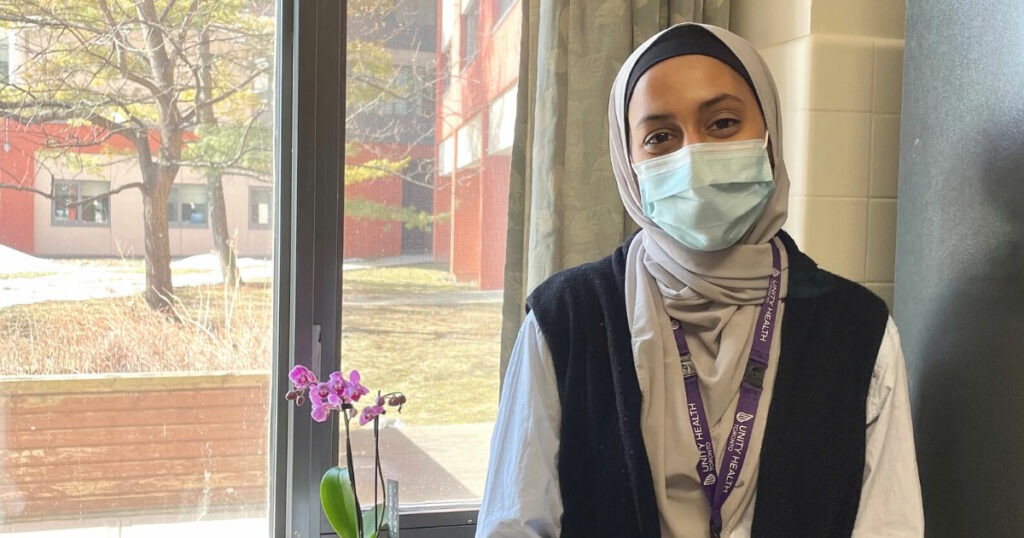Ask me anything: From tips on vitamins to fasting for Ramadan, a Unity Health dietitian shares her best nutrition advice

March is nutrition month and to mark the occasion, we invited Unity Health’s social media audience to submit their nutrition questions to Yasmin Khatau, a registered dietitian at Providence Healthcare. Khatau works at the Bariatric Centre of Excellence, has a Master of Public Health and is a certified personal trainer specialist. From her guidance on diet trends to vitamins, here’s what she said:
Q: What’s your number one nutrition tip?
A: Make sure you enjoy the food you are eating! No diet plan is a good diet plan if you are not enjoying the foods you are eating.
Q: What are your top tips for those who will be fasting for Ramadan next month?
A: Make sure you’re staying on top of hydration. It is very easy to forget water at the end of the day and risk dehydration. Look out for signs like headaches that may be related to not drinking enough water.
Q: How is intermittent fasting (a diet where you alternate between periods of voluntary fasting and non-fasting) or a keto diet (a low carb, high fat diet) beneficial for health?
A: It depends. For some people, this can be beneficial but for others, diets like intermittent fasting or keto can be harmful and dangerous. Make sure you consult your dietitian and healthcare team before starting a diet like this to make sure it is right for you.
Q: Which vitamin is one that all Canadians need to take?
A: While it is hard to speak for everyone, research shows that many Canadians are not meeting their Vitamin D needs. This is largely due to the long winters, as we can get vitamin D from the sun. If you are concerned or want to know more about taking vitamins, speak to you doctor or dietitian.
Q: What are some heart healthy foods to focus on after a bypass?
A: Lots of fruits, vegetables and think whole grains! In general, whole grain carbohydrates are much more heart healthy than alternatives.
Q: Where do you go to find reliable resources for patient education?
A: I personally love to use resources available on Practice-based Evidence in Nutrition, a global database of nutrition resources. However, if I can’t find the resource I am looking for, more often than not I will simply make one myself!
Q: What do you find is most challenging about being a dietitian?
A: There are always new diet trends coming out and sometimes it can be hard to keep up with them to be able to provide education on what is healthy and what is not. Therefore, as a dietitian sometimes you are expected to know everything all the time so you feel the pressure to do well.
